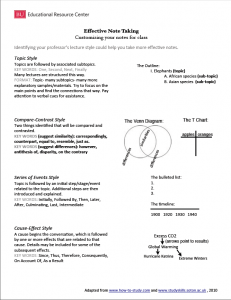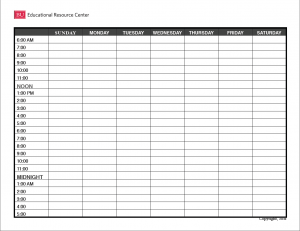March 7, 2011 at 3:01 PM
Everyone has a midterm ritual he or she follows *. Mike personally studies for a few hours with snack breaks and possibly even moving camp. I, however, hunker down in one spot, plug in my headphones to Fratmusic.com and eat as many pretzel m&m’s as possible. During the Spring semester, it always seems harder to focus on exams when you have the prospect of spring break looming in the distance. Before you can get to that light at the end of the tunnel, exams have to be finished and (hopefully!) aced.
There are things that you need to consider when you’re trying to study during this hectic time
- Try not to come to the ERC to get a tutor the day before your exam- you’re going to be disappointed when you hear about the 7 business day waiting period and it breaks my heart to have to tell you, no, we can’t get you a tutor for this very second.
- Be careful of the 3rd floor of Mugar. The PAL section seems to extend during mid-terms and finals and Mugar transforms into the legendary “Club Mugar” for late night study parties. I’d head to a different section if you’re looking for a pin-drop quiet place to study.
- Study hard, muscle through it and get rewarded with a great GPA and spring break. #winning
Good luck everyone!
Kaitlin and Mike
All-star OA’s!
*Side note – yes, it’s “he or she”, not they. Grammar is cool! – MB
By clalama
|
Posted in OA Corner, Takeaways
|
Tagged OA Corner
|
March 7, 2011 at 3:00 PM

lecture styles image
Taking notes in class is underrated. If you find yourself scrawling illegibly on the page, or worse,find yourself dusting off your notebook come exam time, read on.
Most students write notes out in the classic outline format. If it works for you, stick to it, but your notes might come alive if you really paint a picture with them. Why not write out your notes so that they "match" the way your professor lectures? For instance, some lectures are clearly meant to compare and contrast themes or concepts. Listen for key words such as "on the contrary" or "resemble" to make an immediate connection with the subject at hand. Why not set up two columns where the similarities or differences can stand out for you?
If you are in a history class and have to remember key events, draw a timeline. Visual learners (students who like to write out lists or draw things out for themselves) might be able to visualize the timeline when they're trying to "see" the events associated with certain years, etc. Auditory learners might recite from their lists later as a study technique.
By clalama
|
Posted in Takeaways
|
Tagged Resource, Study Skills
|
March 7, 2011 at 2:59 PM

24-Hour Time Grid
How often do you look back on your week and wonder where all your time went? You had a blast, but somehow that paper didn't get written. There's a test coming up next week and you haven't even started studying.
The secret to managing your time wisely is to assess what you did and didn't get done at the end of each day. Whether you use a paper calendar, iCal, or Google, go over your to-do list daily. Consistency is key.
To get an idea of what each day should look like, picture the day in three categories, each 8 hours long:
Rest - Academics - Personal.
Got sleep?
This is one of the anchors in your daily schedule. Set your ideal bedtime and block off 8 hours of glorious sleep. Night owls just end up being tired and less productive the next day.
Academics
Your next anchors are class and study time. You are in class for an average of 4 hours per day and will ideally spend as much time on homework, reading, projects, etc. Block out the time you are in class each day and make room for 4 more hours of schoolwork each day. Four hours a day times 7 days a week gives you 28 full hours for homework. Didn't think you had that kind of time, did you?
Plan to spend at least 10 minutes reviewing your notes after each class. These few minutes spent on reviewing the material will vastly improve how much you retain. Condense your notes each day and review them for just a few minutes a day. You'll avoid the stress and sleep deprivation that comes with cramming before exams if you get familiar with the course material.
"You" Time
The last 8 hours of your day are entirely for your personal good: meals, socializing, sports, job, etc. If you need extra study time, it's coming out of these last 8 hours. Don't sacrifice Zzz's!
It doesn't always seem like it, but there is more than enough time to be a good student while taking time out for yourself. Your college life should be fun and productive. Make an effort to take at least an hour every day to stop and explore your neighborhood, check out FitRec and unplug for a few minutes! We're confident you'll see an improvement in your life at BU.
By clalama
|
Posted in Takeaways
|
Tagged Organization, Resource, Stress, Time management
|
March 7, 2011 at 2:59 PM
With a special thanks to the
 Division Division
of Student Affairs |
 |
Study Environment
Analysis
The purpose of this inventory is to help you evaluate the three places you study most
frequently. Begin by identifying these three locations in the blanks below.
List them in the order in which you use them most frequently. Then
answer each question according to whether the statement is mostly true or mostly false
about each of the three places you have identified.
|
By clalama
|
Posted in Takeaways
|
Tagged Resource, Study Skills, Test
|
February 10, 2011 at 2:26 PM
Hey everyone! Welcome to the Office Assistant Corner (OAC) with us, Kaitlin and Mike. We are both students in the College of Communication, studying Mass Communication and Journalism, respectively. We have been working here at the ERC for a combined seven semesters and have a lot of experience helping students find the appropriate tutoring and academic support resources.
As the semester progresses, we will keep you updated on ERC happenings and helpful tips for getting your academic life organized. (Trust us – we both LOVE using our planners and iCals).
Check back soon for updates!
ERCLove,
Kaitlin & Mike
PS Come see the awesome bulletin board at the ERC!
By clalama
|
Posted in OA Corner, Takeaways
|
Tagged OA Corner
|



